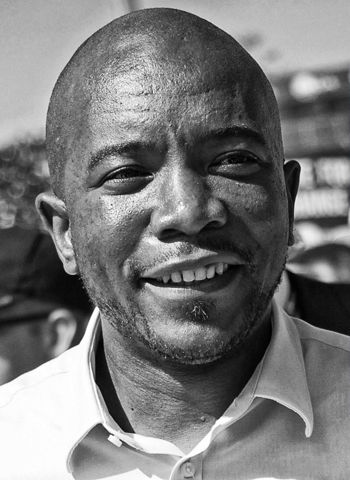In a recent speech I delivered during the State of the Nation debate, I emphasised that South Africa urgently needs to rebuild its foundation to fast-track economic growth to the required high levels.
The reality is that many South Africans are probably not aware of the minutiae of government finances, nor the fact that our country is not in a fiscally sustainable position to deliver on its mandate.
This is predicated on two critical facts: the economy has been growing at a mere 1%, and its debt has soared to 74% of GDP, amounting to just over R5-trillion. Our gross loan debt was about R5.21-trillion (or 74.7% of GDP) and is expected to increase to R6.29-trillion in 2026/27 or 74.7% of GDP.
As with the biblical injunction, a house built on sand cannot stand, and as such we need to build on financially sustainable, ethical and capable leadership and an efficient government if we want our house to stand. Our immediate challenges are that infrastructure spending is insufficient and the Medium-Term Strategic Framework is falling short, achieving only 24% of its targets.
Competent leadership
To address these challenges, it is imperative that we rebuild the state’s capability. The President has rightly highlighted the need for ethical leadership, but competent leadership is equally crucial.
One way to achieve this is by implementing a graduate recruitment programme to attract the best talent into the public service. This will ensure that skilled and capable individuals are driving the country’s development agenda. We need to attract suitably qualified people to work for the state, especially in local government.
For instance, rather than lamenting the R52-billion wasteful expenditures in municipalities highlighted in the Auditor General’s report, efforts can be made to recruit the best chartered accountants from the South African Institute of Chartered Accountants to work on municipalities, and I believe this will help municipalities to manage their finances.
Water shedding
Second, we must focus on fixing municipalities by eradicating corrupt elements and restoring good governance. Municipalities are the backbone of service delivery, and without addressing their dysfunctionality, broader progress will remain elusive. The legacy of this seventh Parliament administration cannot be defined by water shedding, as the previous administration was defined by load shedding.
Water reticulation falls under the competence of local government, while the national government is responsible for managing the construction of bulk infrastructure. It is crucial to ensure that municipalities are equipped to effectively manage leaks and reservoirs to maintain efficient water distribution and reticulation. Linked to this are issues of proper revenue collection by municipalities.
Infrastructure
We welcome that total infrastructure investment planned by the government over the next three years amounts to R943.8-billion. This includes investments of R486.1-billion by state-owned companies and public entities, R213.8-billion from municipalities and R224.8-billion from provincial and national government.
Furthermore, infrastructure development must be prioritised. To achieve this, we need to establish well-directed public-private partnerships (PPPs) that focus on building critical infrastructure. This is the only viable pathway for sustainable development and economic growth.
Between 2012 and 2022, public sector capital investment averaged 5.4% of GDP, while private sector capital investment averaged 10.9% of GDP. Combined, these investments reached 14.2% of GDP — a figure that falls significantly short of the National Development Plan (NDP) target of 30%.
This level of investment is insufficient to drive the economic growth required to address South Africa’s developmental challenges and achieve the levels of prosperity to which the country aspires.
Finance Minister Enoch Godongwana is set to introduce the Appropriation Bill and table the 2025 Division of Revenue Bill. These critical pieces of legislation will outline the allocation of funds across different spheres of government, ensuring compliance with constitutional requirements.
The Standing Committee on Appropriations will play a pivotal role in overseeing this process, guaranteeing that the distribution of resources aligns with national priorities and legal frameworks.
Fiscal discipline
In the coming months, Minister Godongwana will also need to reassure the nation that South Africa is capable of meeting its substantial financial obligations, which exceed R1-trillion. This will require transparent communication and a clear demonstration of fiscal discipline to maintain public and investor confidence in the country’s economic management.
Tough decisions will need to be made, particularly regarding the Social Relief of Distress grant and the management of the Gold and Foreign Exchange Reserve Account, where R100-billion is released from the account to reduce the borrowing requirement.
As part of its oversight role, the Standing Committee on Appropriations will focus on ensuring that a robust debt management strategy is presented weekly. This strategy must address the dysfunction within state-owned entities (SOEs) and lay the groundwork for a solid foundation that enables South Africa to achieve sustainable growth.
Rebuilding South Africa’s foundations demands a comprehensive and multi-faceted strategy. This includes fostering ethical and competent leadership, ensuring efficient and accountable municipalities, making strategic investments in infrastructure and maintaining prudent fiscal management.
These pillars are essential to addressing the nation’s challenges and unlocking its potential. Only through a concerted effort across these areas can South Africa be set on a sustainable path toward long-term prosperity and inclusive growth. DM




